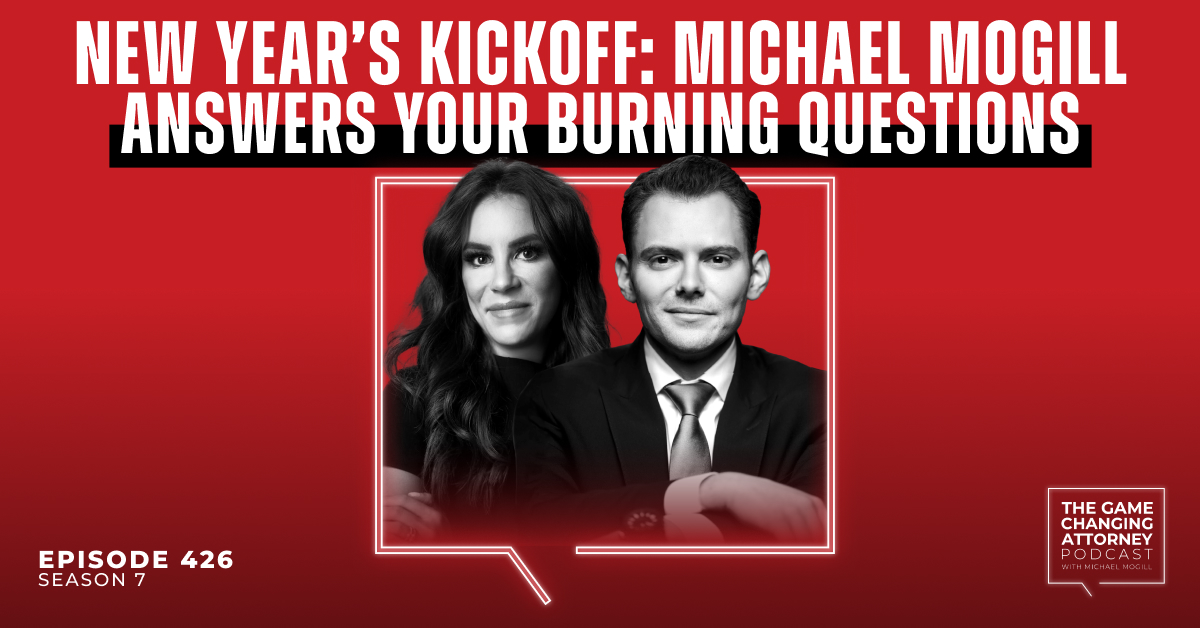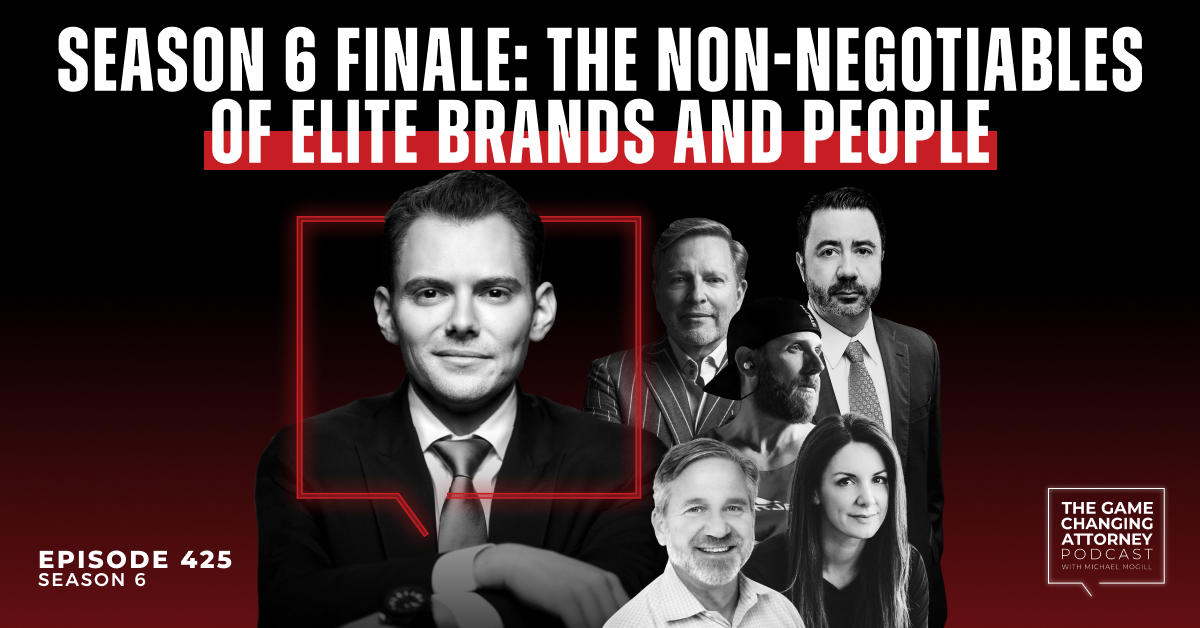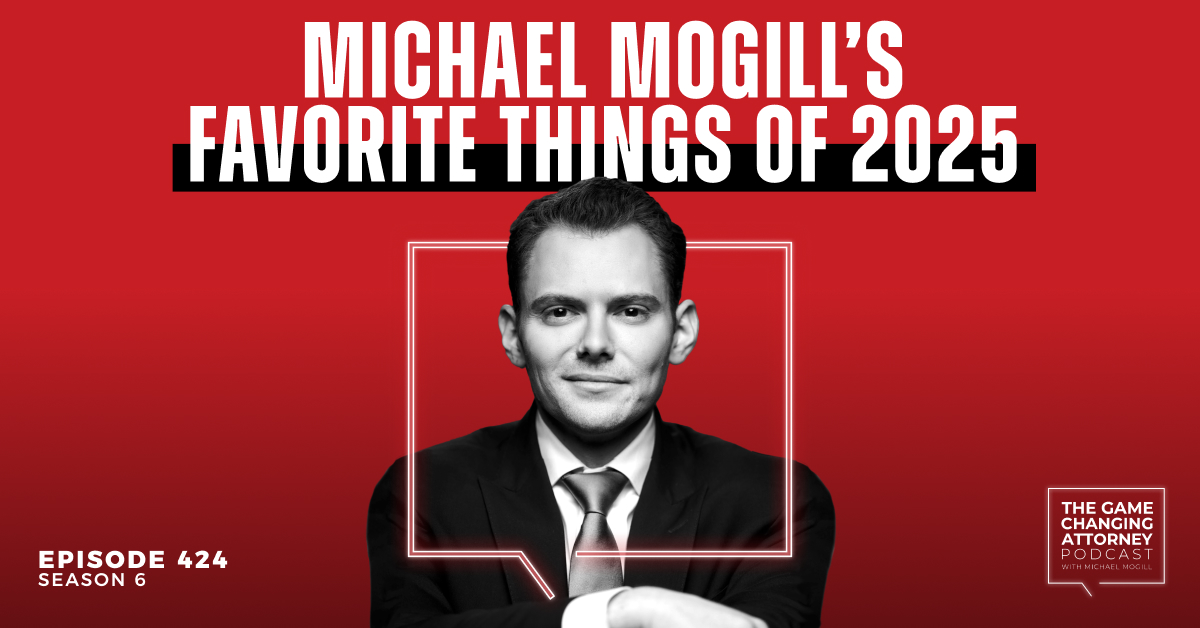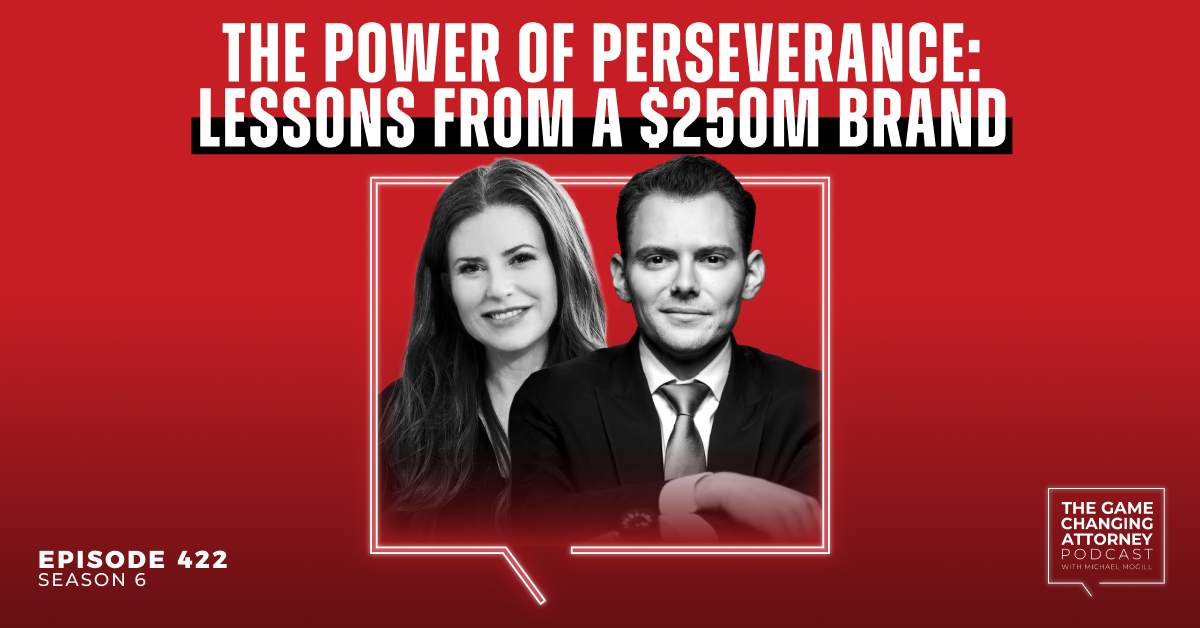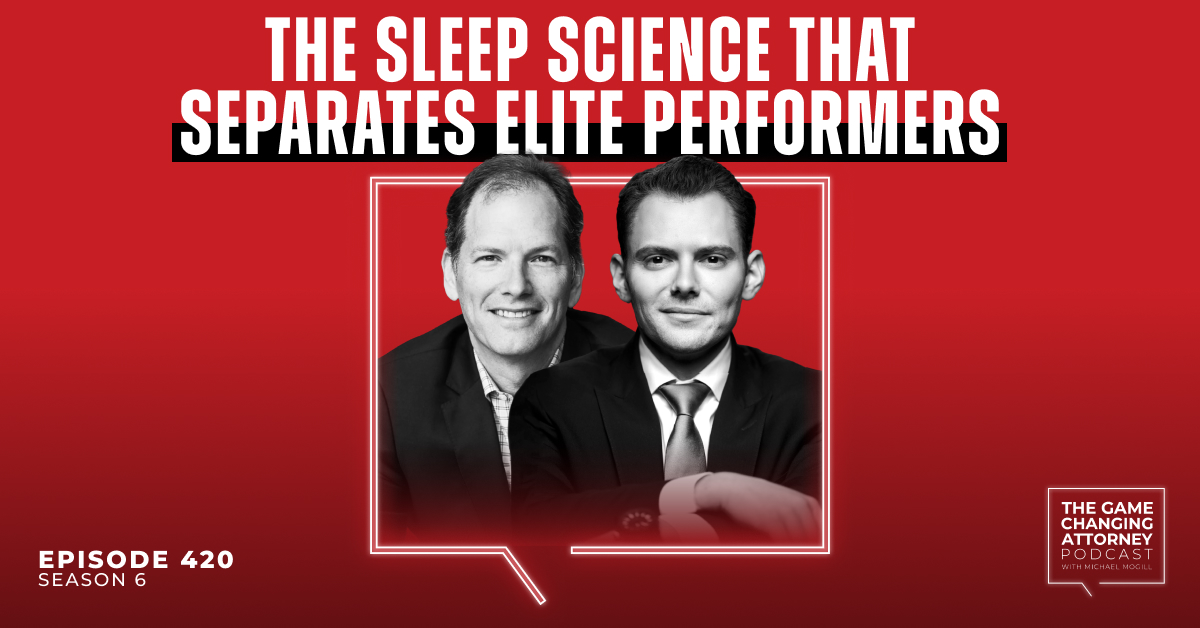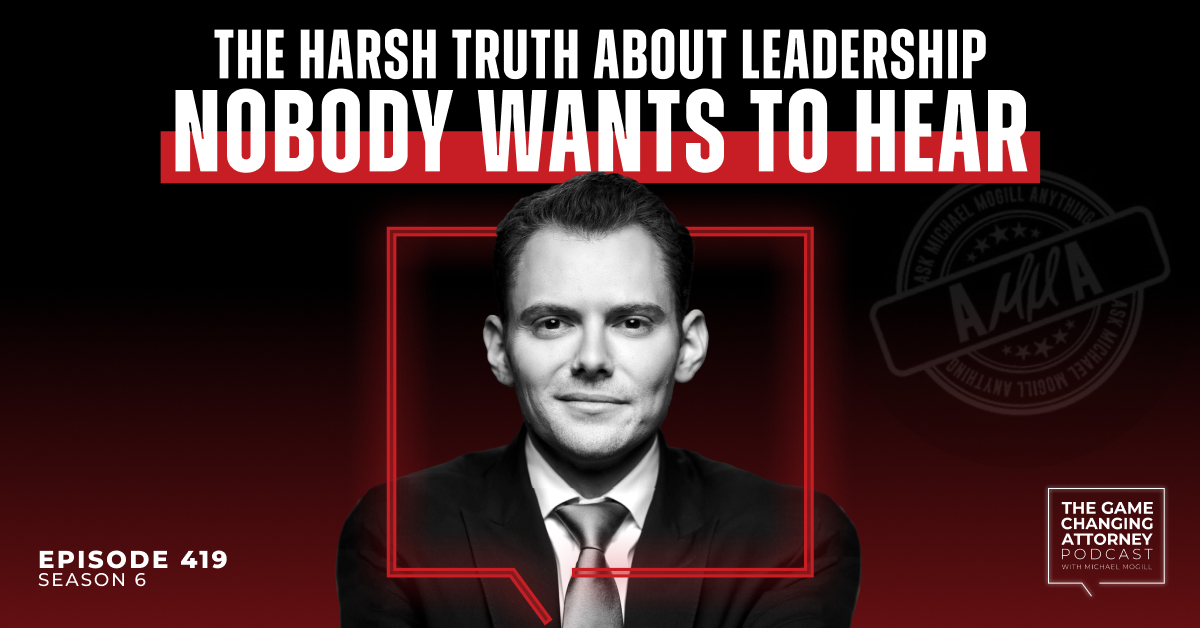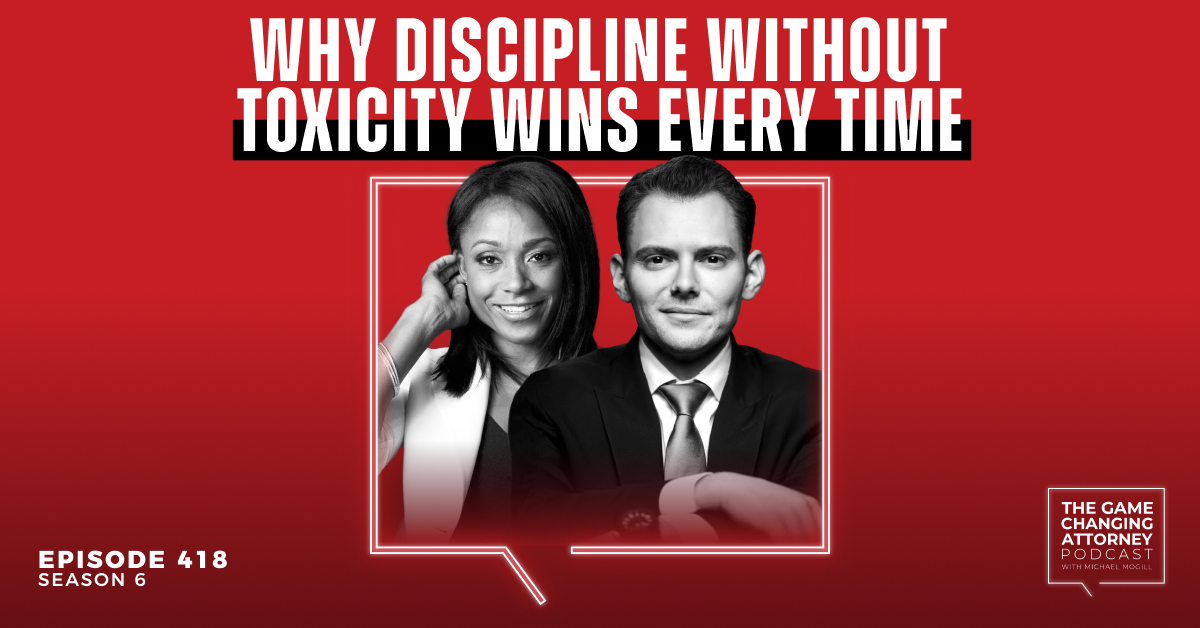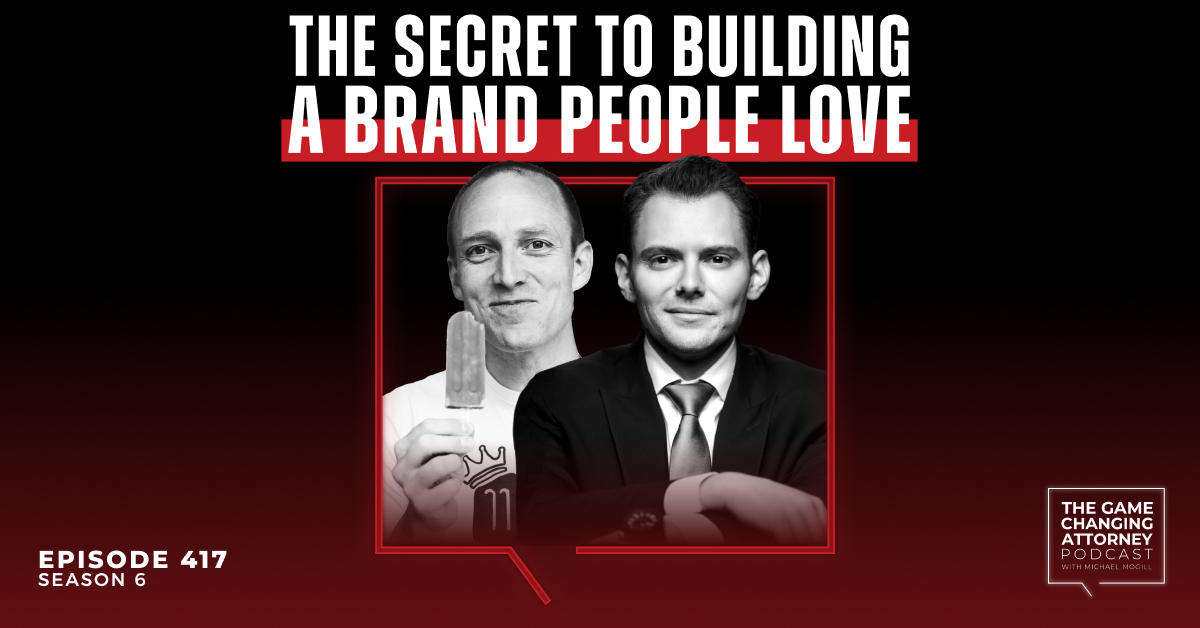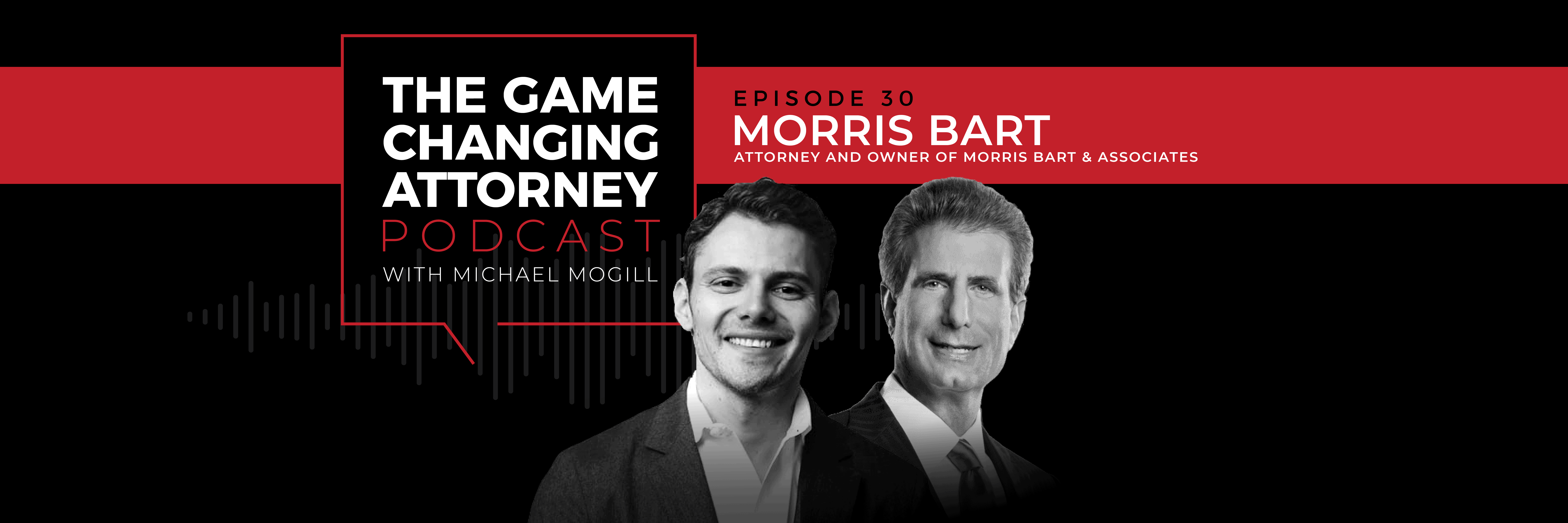
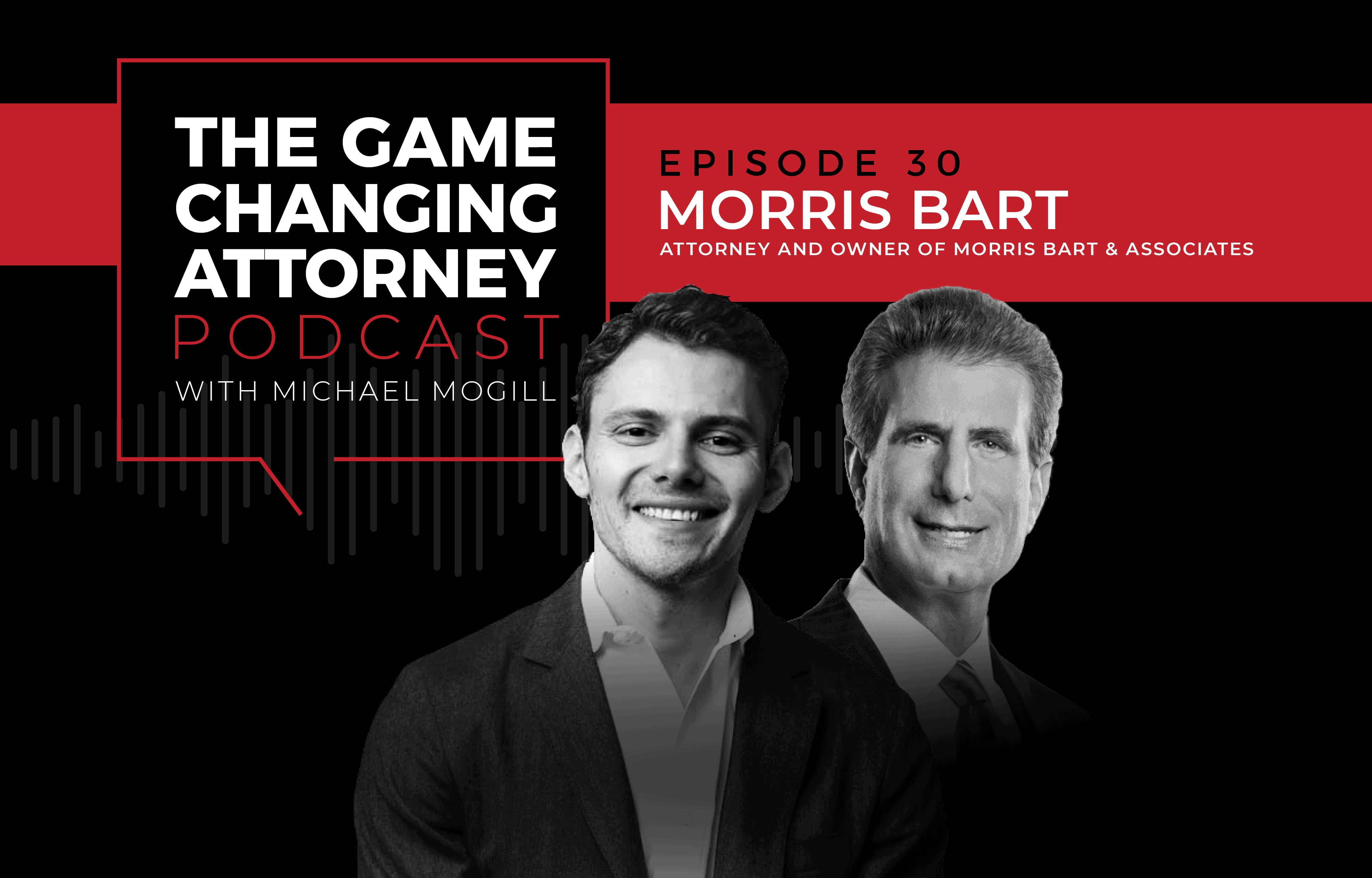
EPISODE 30 — Morris Bart — One Call, That’s All: A Long-Term Commitment to Legal Advertising
Morris Bart was the first attorney to advertise in the state of Louisiana, and one of the first to do so in the entire country. The second that the Bates decision was passed, he was on the train and he’s never looked back. Now a New Orleans local celebrity, Morris pioneered the use of TV ads and billboards, and he rode the wave from a single office in 1980 to 17 locations today.
In this episode of The Game Changing Attorney Podcast, Morris dives deep into the commitment needed to succeed, the challenge of creating the perfect team, and the famous “One Call, That’s All” slogan that started it all. He’ll answer questions such as:
- Is legal advertising about best practices, or does Morris Bart have a sixth sense?
- Do you really need to spend millions to get leads from TV ads?
- How did Morris Bart write the genius “One Call, That’s All” slogan?
- What one aspect of his firm will Morris Bart never let go of?
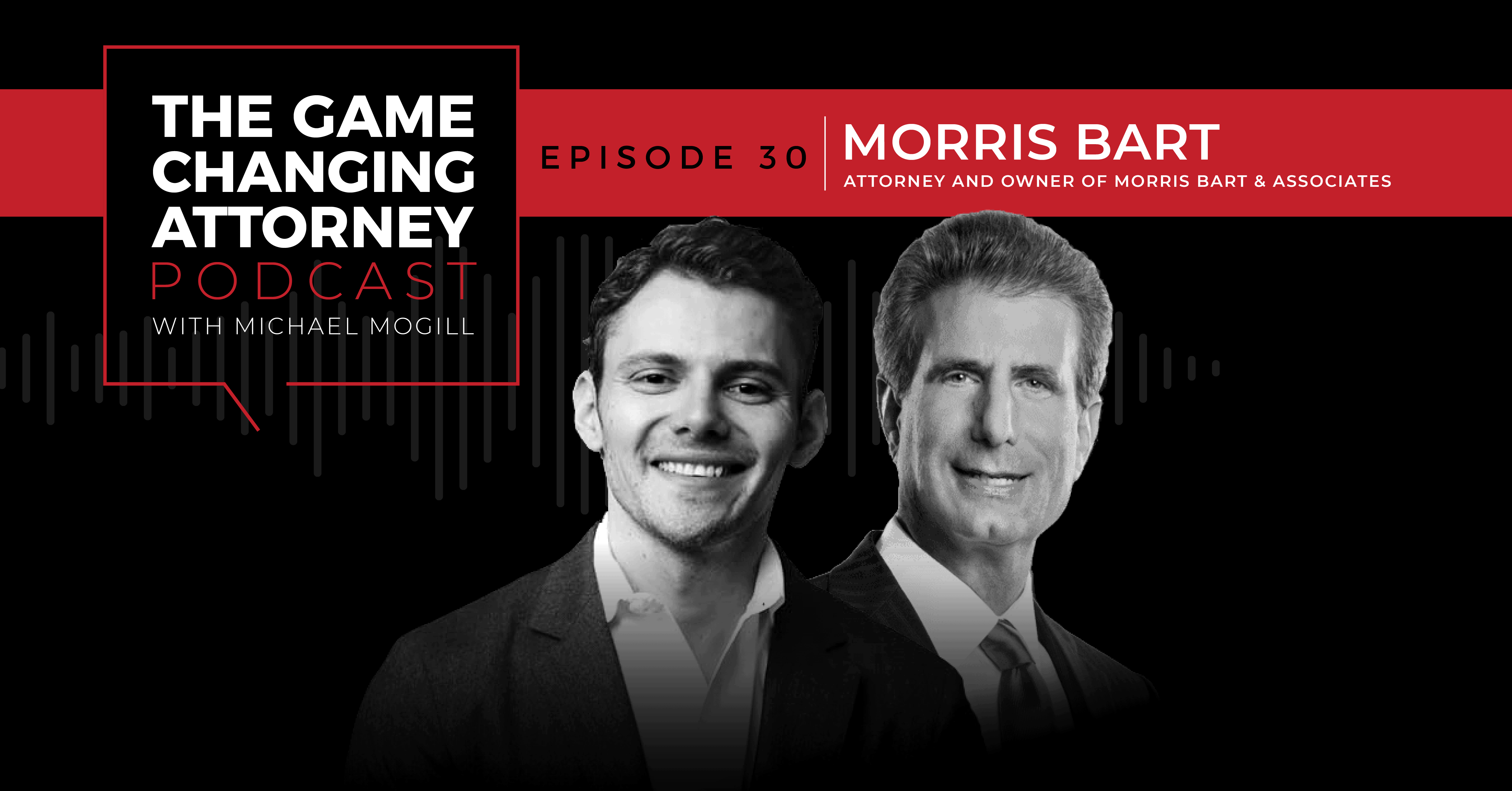
Listen & Subscribe
Show Notes:
2:55 – A hunger to make a name for himself. “In the beginning of the 1900s, it was considered unethical for attorneys to advertise. Then, fast forward to 1977, and the Supreme Court and the Bates decision said it is now ethical for lawyers to advertise. I graduated law school in 1978. I was a young, ambitious, driven lawyer chomping at the bit ready to get going. I was working for a small business litigation firm, and just as it is now, it was so damn hard to get business. I felt that if I could get cases, I could be successful and make a name for myself. So, when the Supreme Court made the decision to allow lawyers to advertise, I saw that as my ticket. I saw that as something I should embrace, something I should do. I started advertising in 1980, and I have never gotten off the train since then.”
6:38 – The two sides of the need for legal advertising. “It really achieves the purposes that the Supreme Court set back in the early 70s, and that was that it’s in the best interest of the public to know about the availability of legal services. Perhaps not so much in the realm of auto litigation because the airwaves are glutted with lawyers looking for cases — I don’t think the public is at a loss as to how to find a lawyer if they’ve been hurt in a car wreck — but clearly, it’s still serving the purposes in mass tort litigation, which my firm is very active in. Anytime there’s been a drug that’s been recalled or there’s a bad drug contaminated drug, a medical device, all the different areas of mass tort, I feel we do a huge public service by going on the air and letting people know these are the issues involved in this drug. Otherwise, the drug companies would simply sweep it under the car.”
8:56 – The origin of “One Call, That’s All.” “This is what people want. They want something easy. They want something simple. I wanted to transpose that to law. I wanted to create a slogan that’s as easy as a Grapefruit 45 diet ad. So, Sackett and I start talking, and we talk about, ‘Okay, well how do you get ahold of a lawyer? You call.’ Then, you can see the transition after that — once we start talking about calling, I’m like, ‘Okay well what could be easier than just making one call to a lawyer? Maybe one call that does it all?’ And then we quickly put together ‘One Call, That’s All.’ At the time, I thought it’s going to be the kind of slogan du jour that you use for a year or so and then move on to another slogan, but to my amazement, here I am in 2020 still using the slogan.”
10:12 – It’s all about the branding. “I’m not as big on slogans as other lawyers are, even though I’m very identified with ‘One Call, That’s All.’ It goes more into branding, rather than worrying so much about what your slogan is. It’s a matter of just coming up with a slogan that speaks to you and speaks to your identity, and then you stick with that slogan and you repeat it over and over and over again. It becomes identified with you. ‘One Call, That’s All’ is what I am now branded with, so obviously it’s an extremely important slogan to me and all of my markets because when you say that, people instantly know that’s Morris Bart. But the slogan, ‘One Call, That’s All’ in and of itself is not an earth-shattering slogan. It’s a catchy little slogan, but what’s more important is that I have marketed the hell out of that for many decades now, so it’s branded with me.”
12:56 – You’ve got to spend to succeed. “If you’re not going to be a top spender in your market, then it’s going to be difficult to achieve a high level of success. There was a time many years ago where you could go into a market, and you could have a moderate television budget and really experience a high level of success. Every market in America is now flooded with lawyers advertising, so you can’t really break open new ground. All you can do is just try and wedge a space for yourself in that market. There are opportunities that can be found, but it’s going to take buckets of money now in your major markets — millions of dollars every year.”
14:44 – The digital advantage. “A lot of young lawyers now have a huge advantage I didn’t have, which is digital. Digital allows an attorney to get on the air, and with a lot of hard work put into blogging and having an active social media presence, you can have a successful practice and avoid the multimillion dollar commitment it takes to go on television.”
18:07 – Authentic advertising. “The first one was to commit to advertising, and to do it in a style I was comfortable with. If there’s any one major take-home point that I would like to make to anyone listening to this, it’s simply this: advertising works, but you have to do it in the style that fits your personality. And that’s a mistake most people make.”
23:36 – A new motivation to keep growing. “After a period of time, the money became insignificant because I had achieved my dreams financially. But then I realized that I love competition. I love doing marketing and PR. It’s something I feel I’m very good at. I’ve also built up a very significant firm, and I have lots of lawyers that have worked for me for decades. I feel a responsibility to keep them successful so they can feed their families. I mean, look at what you have: 300 people working for you, and those people feed their families based on your ideas and what you do to market yourself. It’s a pretty cool but yet awesome responsibility.”
27:47 – Accept help from others. “The advantage I have with a large firm is that you can build a management team in your image. So, before I had to be a renaissance man. I had to be able to do the marketing, try the cases, manage people, give out raises, and so on. Now, I have an HR department, I have an IT department, I have administrators, I have consultants… I have a whole team that can advise me, although the buck still stops with me. So, I think my decisions now are more uniform. They make more sense because I’m able to tap into experts in their field. Oftentimes, we as lawyers — particularly if we start being successful — think we’re an expert at everything. Not only in handling cases, but we’re an expert at marketing, we’re an expert at human resources, and that’s not really true. There are people out there that have an expertise in those areas that can give you very good sound advice. It’s up to you whether you act on that advice or not.”
34:21 – Balance is key. “It’s kind of like the ‘work hard, play hard’ routine. When I would play, I’d play hard. When I’d work, I’d work hard. That’s the balance that works for me, and to me that’s the key to a successful life: balance. It’s not about making a lot of money and getting out and not doing anything. Or it’s not about working your ass off and dying in your office chair. It’s about balancing the two throughout your whole life and shifting the balance depending on what’s going on in your life. But I hope to forever keep a balance of work, family, and fitness in my life, as long as I can.”
40:42 – What does being a game changer mean to you? “I think being a game changer means that you love what you’re doing, both as a lawyer and a marketer. I want to get lawyers away from thinking, ‘Oh, I’m just going to market and be a success, but law sucks. I don’t want to do it.’ If you have that attitude, don’t be a lawyer. I think you’ve got to love what you do. You’ve got to love people, and you have to have a full-time, long-term commitment. You’ve got to be committed. If you’re not committed, it’s not going to happen.”
EPISODE RESOURCES
Abraham Lincoln
Springfield Gazette
The National Trial Lawyers Association
Bar Association
Richard Sackett
Grapefruit 45 diet commercial
Morris Bart birthday party
Ross Cellino
John Morgan
Aspen, Colorado
Connect with Michael
- Text directly at 404-531-7691
